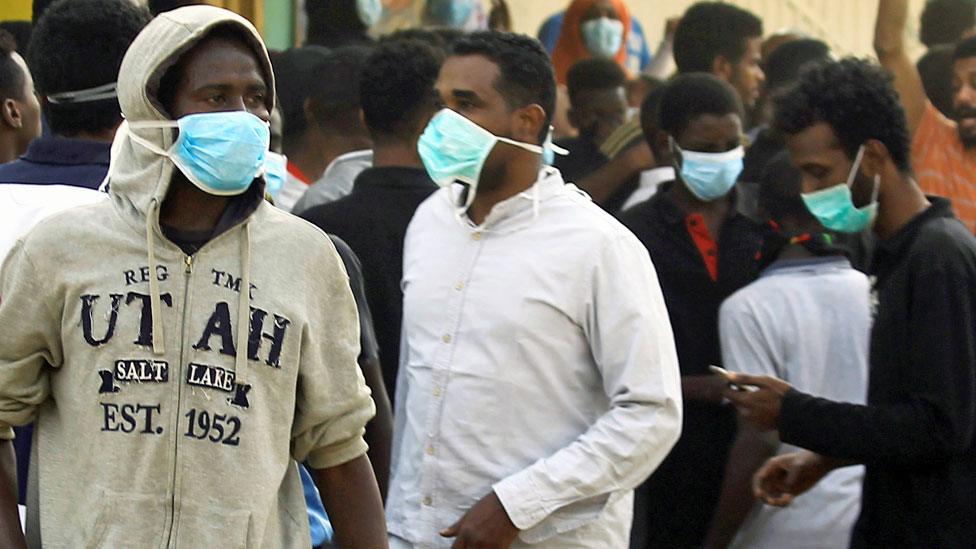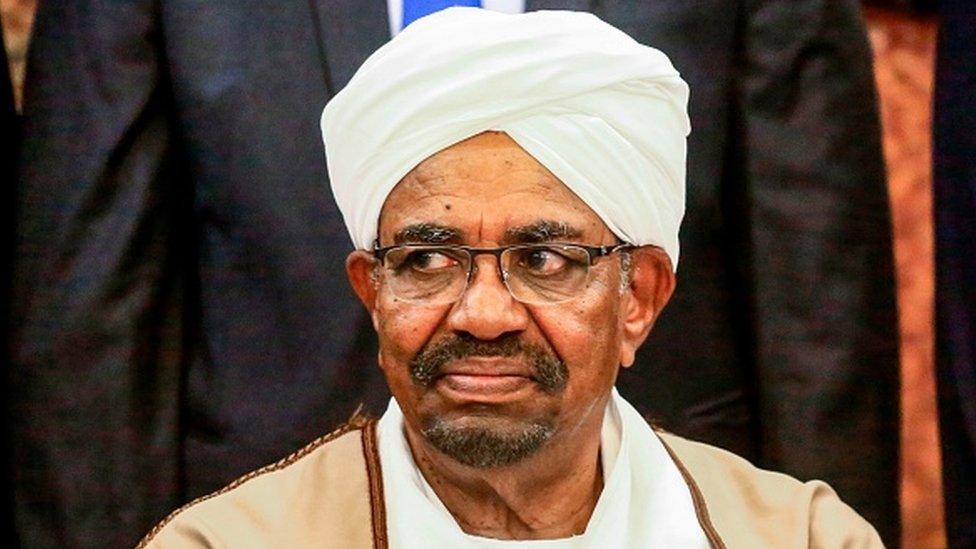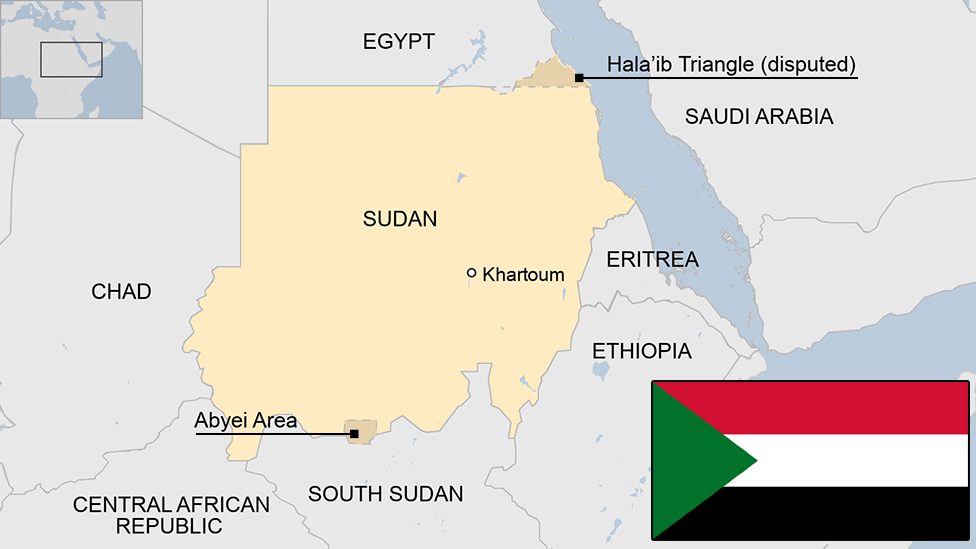Biggest protests 'in living memory' hit Sudan
- Published
Riot police fired tear gas in an attempt to break up protesters in the capital, Khartoum
Security forces have clashed with demonstrators in Sudan's capital, Khartoum, as anti-government protests take place across the country.
Riot police have used tear gas to try to break up the large rallies.
The umbrella group of doctors, engineers and teachers co-ordinating the protests says they have been held in at least 50 places around Sudan.
They began last month over the economy, but are now focused on removing President Omar al-Bashir from office.
Journalist Zeinab Mohammed Salih told the BBC that Thursday was the biggest day of protests in living memory.
Police reportedly used tear gas to control the crowds in several neighbourhoods in Khartoum.
Since the protests began, officials say that 26 people have so far died, but rights groups say more than 40 have been killed.
Doctors have increasingly been targeted by security forces because of their high social standing as well as the active role some have taken in organising the protests.
Last week, state forces shot dead a doctor taking part in protests in the Burri district of the capital.
Some foreign journalists have been prevented from reporting events in the country.
In recent days, a number of journalists working for Al Jazeera, Turkey's Anadolu news agency and Saudi-based Al Arabiya TV have been denied accreditation.
Correction 1 February 2019: This story has been amended to remove the allegation that a 16-year-old was shot dead in the protests on 17 January after the Sudan Doctors Syndicate retracted its statement. The group also said that the doctor who died on that day was shot twice, not 14 times, with the bullets creating 14 pellet wounds to his chest.
- Published18 January 2019

- Published14 August 2019

- Published13 September 2023
